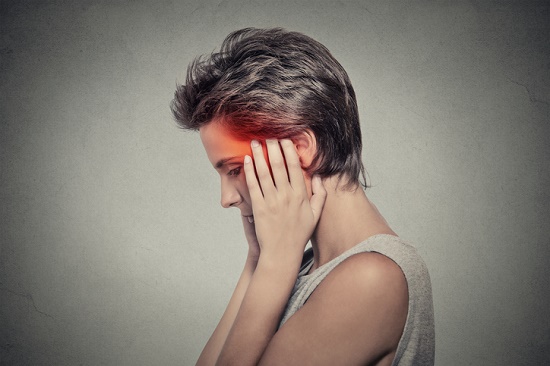
While it’s true that there is at this time no scientifically-established way to cure tinnitus, researchers are hard at work to identify one. In the meantime, a range of tinnitus therapy options are available that can deliver considerable relief.
Think about it this way. If you have a headache, you take Tylenol despite the fact that it doesn’t “cure” your headache. Pain relievers simply make the pain disappear into the background so that it doesn’t impact your day. In the same way, tinnitus therapies can help lessen the severity of symptoms so that your tinnitus has minimum impact on your daily routine.
Seeing as everyone responds to tinnitus differently, there’s no one-size-fits-all treatment. You’ll need to work with your provider to discover the approach that works the best for you.
Here are some of those options.
Tinnitus Treatment Solutions
If you are suffering from tinnitus, you’ll want to talk over the following treatment options with your hearing care or healthcare provider.
Treatment of the underlying condition
Whereas the majority of cases of tinnitus are not curable—and are the result of hearing loss or other non-reversible damage—certain cases are caused by an underlying physical condition. You’ll want to rule these out prior to pursuing other treatment methods.
Potential physical causes of tinnitus include jaw joint issues (temporomandibular joint, or TMJ dysfunction), too much earwax or other blockages in the ear canal, head and neck injuries, and side effects to certain medications.
General Health And Fitness
The intensity of tinnitus symptoms can fluctuate depending on all-around health. Taking actions to boost general fitness is, therefore, something tinnitus patients can get started on immediately to reduce the severity of symptoms.
Every individual is unique, and what works well for someone else might not be right for you. The purpose is to try out a variety of activities to discover what is most effective.
Activities that have shown promise include instituting a healthy diet, achieving lots of physical exercise, meditating, and partaking in activities like bicycling, which can mask the sounds of tinnitus.
Hearing Aids
Tinnitus is commonly associated with hearing loss and hearing injury. In reaction to reduced stimulation from outside sound, the brain goes through maladaptive changes that bring about the perception of tinnitus.
By strengthening the amount of environmental sound, hearing aids can help mask the tinnitus, making the sounds of tinnitus less noticeable. Hearing aids additionally supply increased sound stimulation to the brain, which is thought to be neurologically favorable.
Sound Therapies
Sound therapy is simply the delivery of sound in the form of white noise, pink noise, or nature sounds to reduce the perceived burden or intensity of tinnitus.
Sound therapy functions by masking the tinnitus and also by retraining the brain to recategorize the sounds of tinnitus as unimportant. This combined effect can minimize the short and long-term degree of tinnitus.
Sound therapy can be provided through special tabletop gadgets, but also through portable multimedia devices and even through hearing aids. Medical-grade sound therapy incorporates custom sounds that match the pitch of the individual’s tinnitus for the most effective outcomes.
Behavioral Therapy
Remember that tinnitus is the sense of sound in the brain when no exterior sound is present. The ailment is, for that reason, highly personal, and each person responds differently.
In fact, whether or not the person perceives tinnitus as debilitating or minor is largely as a consequence of psychological tendencies and not to the loudness or pitch of the tinnitus. That’s why cognitive/behavioral solutions to tinnitus therapy have been shown to be exceptionally effective.
Several techniques exist, including Mindfulness-Based-Stress-Reduction (MBSR) and Tinnitus-Retraining-Therapy (TRT), which brings together cognitive-behavioral-therapy with sound therapy.
Drug Therapies
Even though there are no current FDA-approved medications for tinnitus, antianxiety and antidepressant medications are frequently utilized to manage the behavioral side effects to tinnitus. These drugs do not appear to impact tinnitus itself, but may offer much-needed relief if deemed appropriate by your physician.
Experimental Therapy
The search for a tinnitus cure is continuous. A number of experimental therapies are in development or testing and new methods become available each year. If your tinnitus is significant, and you’ve experienced little benefit from existing therapies, you might be a candidate for one of these advanced treatment options.
Check out the Experimental Therapies webpage at the American Tinnitus Association website for more information.
Find Relief For Your Tinnitus
Tinnitus is currently being aggressively studied, with new discoveries and prospective treatment methods reported every year. Even now, you can find a variety of encouraging treatments that, while not supplying a cure, can supply considerable relief. You owe it to yourself to check out these options, stay positive and persistent in your tinnitus care, and work with your provider to modify your treatment plan for the best results.